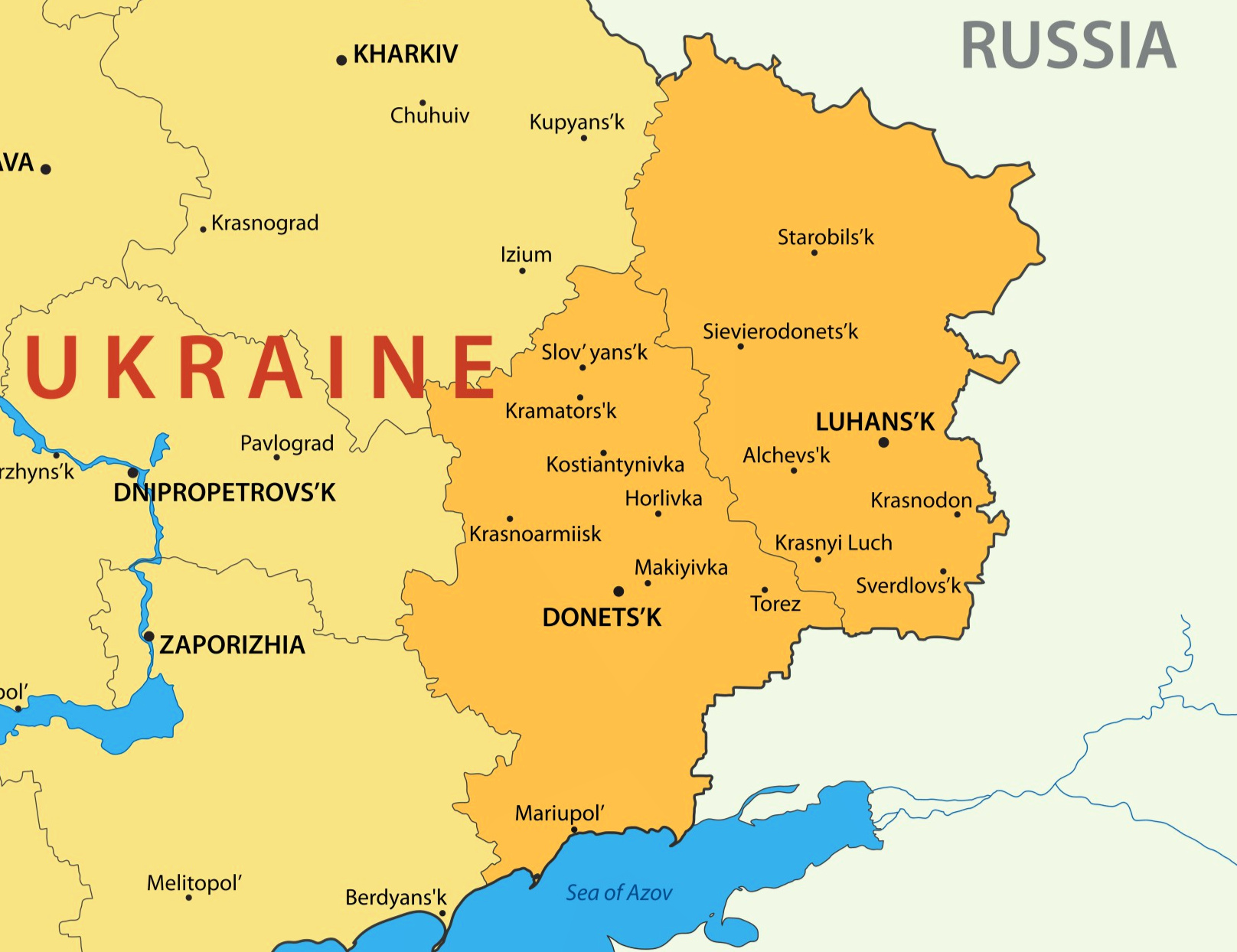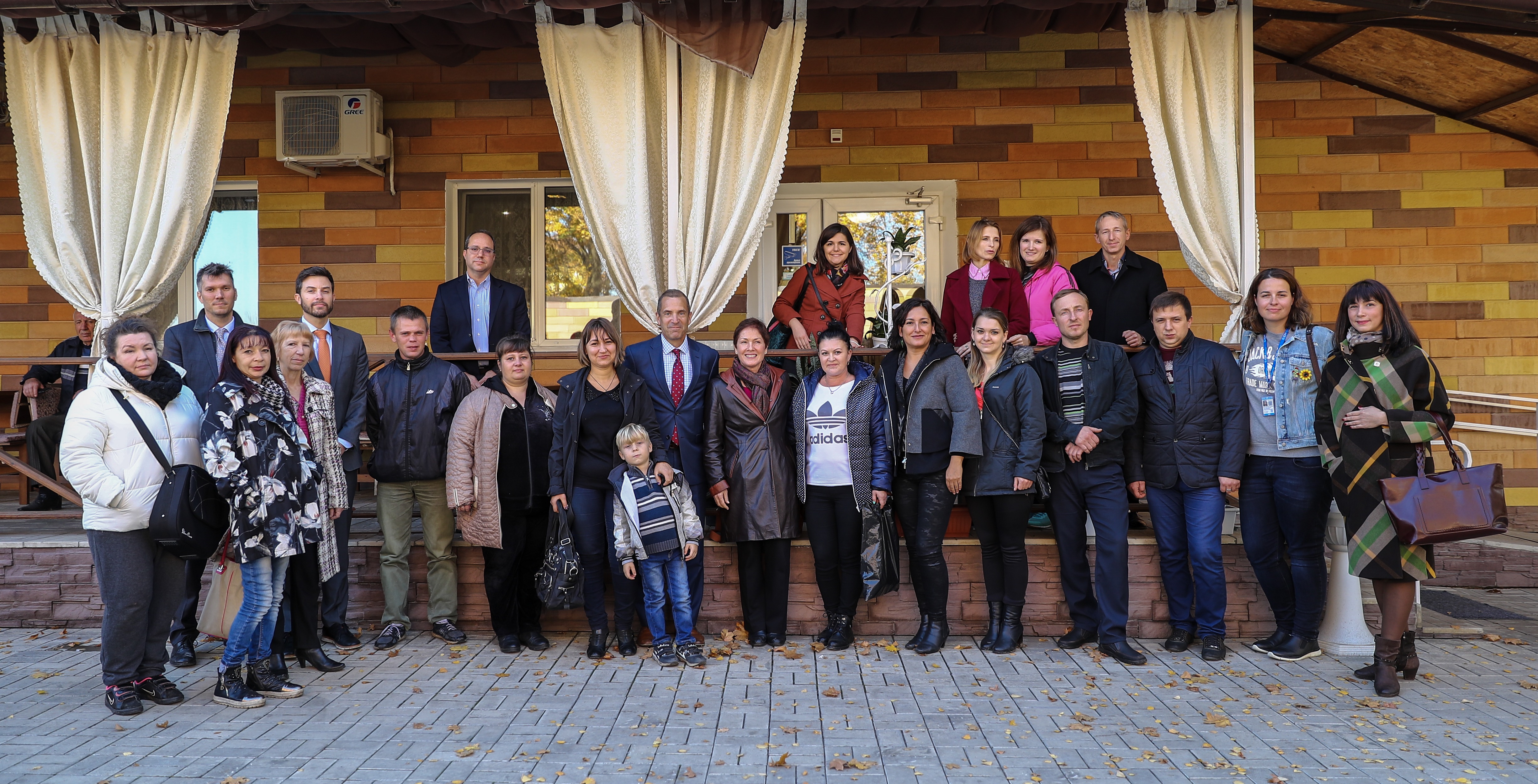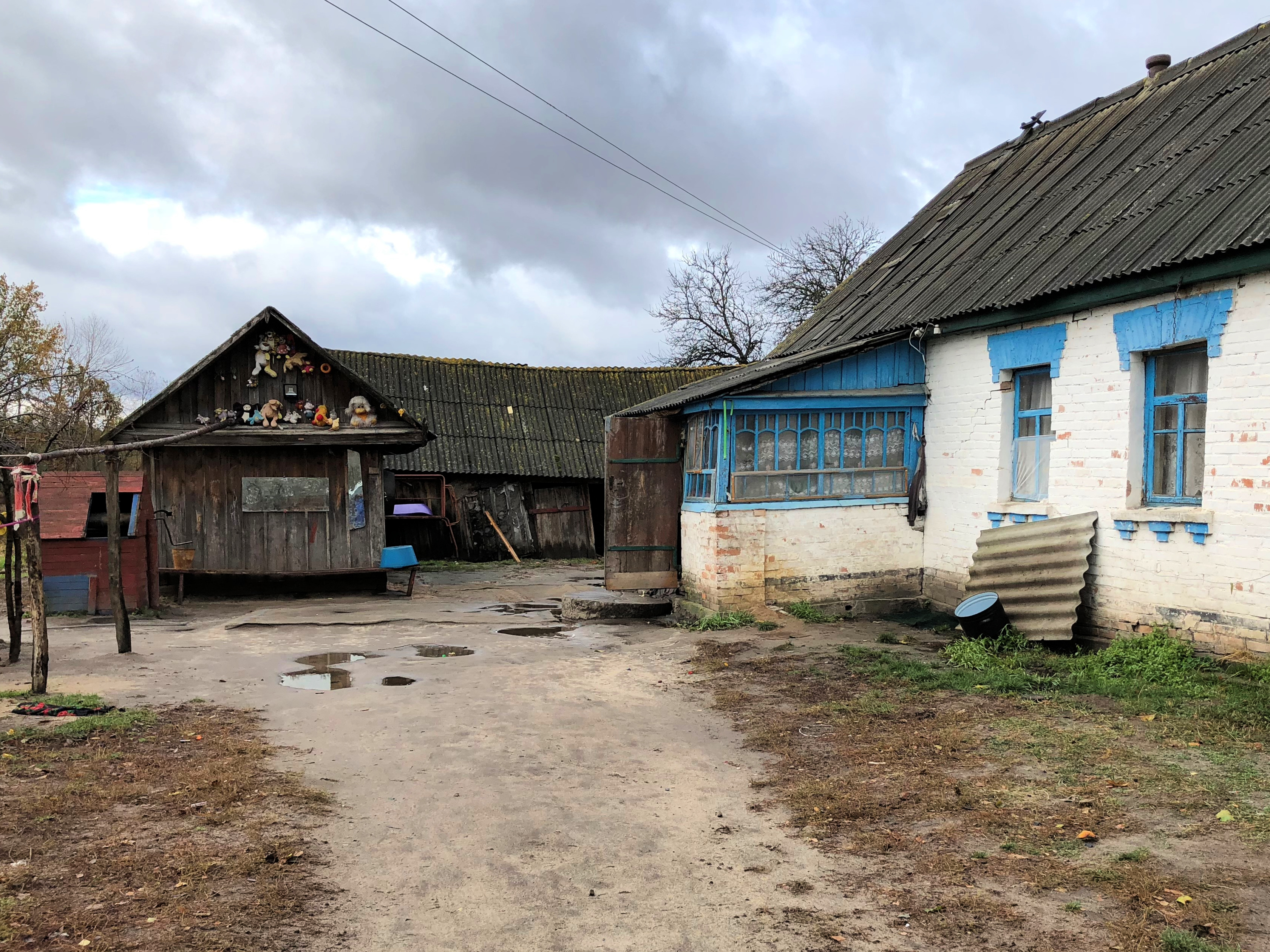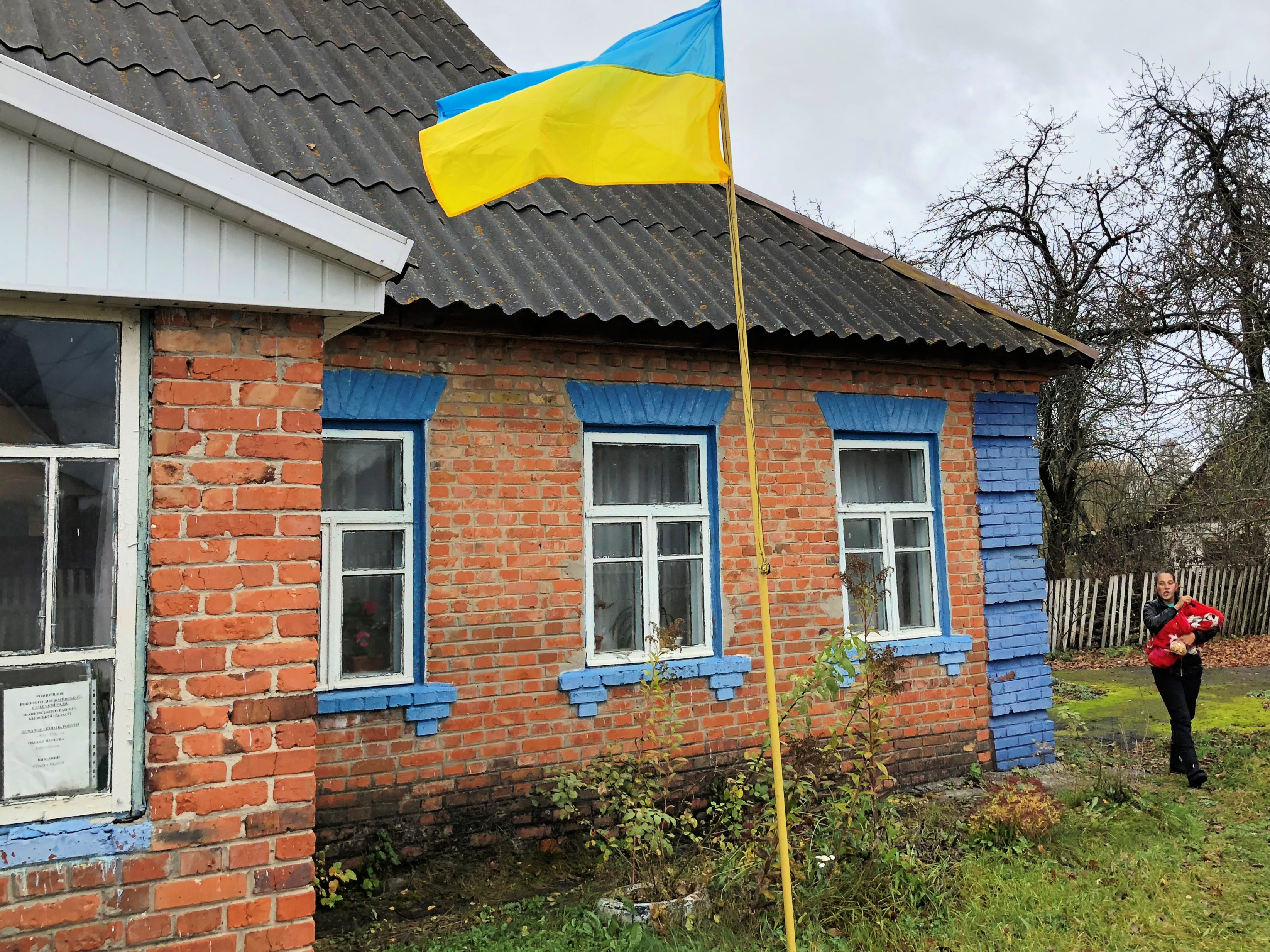By Rachel Bauman,
Policy Advisor
In the ongoing war in Donbas, now entering its fifth year, most of the people on the front lines—in some cases, literally—of Ukraine’s struggle for democracy and sovereignty go unnoticed. Minorities like Roma also often have special challenges that must be comprehensively addressed in Ukraine as well as Europe more broadly. To meet some of these Ukrainians and hear their stories firsthand, I, along with my colleagues Mark Toner and Alex Tiersky and Dr. Cory Welt of the Congressional Research Service, traveled to Ukraine to gain a more nuanced understanding of war, politics, and everyday life in Ukraine.

We were up before dawn for our first working day in Ukraine to make our way from the Kiev train station to Kramatorsk, a small industrial city in Donetsk Oblast that was briefly occupied by Russian-led forces in the early days of Russia’s war against Ukraine. Kramatorsk and its surrounding regions are home to many internally displaced persons (IDPs) forced out of their homes by frequent shelling along the contact line separating Ukrainian government-controlled areas and Russian-occupied territories.
Our first meeting that day vividly illustrated the destruction this senseless war has unleashed on the lives of average Ukrainians. Together with representatives of the International Organization for Migration (IOM), which receives generous support from the U.S. Government, and U.S. Ambassador to Ukraine Marie Yovanovitch, we heard stories of struggle, tragedy, and resilience from some recipients of this aid.
One man told us that the cash-based assistance he received helped him make vital repairs to his car and house and buy clothing and food for his six children. Two sisters expressed their gratitude for the small business grant they received, which allowed them to start anew when they realized they could not return to their home in Horlivka. A tearful single mother recounted her struggle to subsist after her house was destroyed. Another woman described the terrible nights spent in her basement seeking shelter from shelling. All of them talked about the difficulties they faced—from long lines in harsh weather conditions to landmines and shelling—when trying to visit their families and homes on the other side of the contact line.
Despite these traumatic and life-altering circumstances, the support of the United States and international and local religious programs have enabled these IDPs to start a new life in another part of Ukraine.
 Our meeting with IDPs in Kramatorsk, Donetsk Oblast, along with U.S. Ambassador to Ukraine Marie Yovanovitch
Our meeting with IDPs in Kramatorsk, Donetsk Oblast, along with U.S. Ambassador to Ukraine Marie Yovanovitch
We learned more about the conditions of IDPs in Kramatorsk from city representatives. The group expressed their concerns about the high rent and limited housing opportunities in Kramatorsk that make it hard for IDPs to live there permanently.
Of the 70,000 IDPs registered in Kramatorsk (a city of originally 120,000), only 50 percent live in the city. The other half are registered for benefits but continue to live in their homes along the line of contact or in the occupied zones. Those who live on the Russian-controlled side of the contact line must endure the arduous task of monthly travel to the other side to collect their benefits, including pensions.
Crossing the line has become so dangerous and stressful that some of the IDPs we met earlier said that, although they had friends and family on the other side of the contact line, they have stopped trying to cross it. We were as impressed by the resiliency of these displaced people and the NGOs that have sprung up to help them with their legal and humanitarian needs as we were struck by the bleak outlook so many of them have for a peaceful, prosperous future.
I also visited a small town about two hours from Kyiv with a sizeable Romani population to hear from the people themselves what it is like to live as a minority group in rural Ukraine.
The brisk weather and overcast sky mirrored the gloominess and poverty of the town compared to Kyiv. Since we arrived early, a Romani woman invited us into the small house where she lived with her partner and nine children. She explained that she was having difficulty securing government benefits for her children, who were already living in poverty. She watched over the house and children, and her partner had a chronic disease which rendered him unable to work, so they survived thanks to the charity of several religious organizations and the government payments they received.
I heard similar stories about troubled relations with the regional and national governments from other members of the Roma community. We met in the town library, a small, worn-down Soviet relic with no indoor plumbing that also serves as a local government office. A portrait of Ukrainian President Petro Poroshenko and the Ukrainian trident adorned the wall behind the desk in the room.
A group of local Roma, some with small children, came in and sat down, speaking among themselves in Russian and Ukrainian. A colleague from the U.S. Embassy and I introduced ourselves and began to ask questions about life for Roma in the town.
Everyone in the room insisted that they had no problems with their non-Romani neighbors, but noted that unemployment was a persistent problem; most adults in the group were illiterate or had only an elementary-level education. Women generally tended to the children and the home, and the men foraged for mushrooms and berries or picked through trash for scrap metal and empty bottles.
They said that all their school-age children, in spite of their difficult circumstances, were enrolled in the local school. Some mothers complained of discriminatory treatment toward Roma children in schools but emphasized that this meant slightly preferential treatment for non-Roma children rather than outright abuse. They vehemently denied experiencing any incidents of nationalist violence in their isolated village, like those that have occurred in and around larger cities like Lviv and Kyiv.
 One of the Romani women that we met with invited us into her home, which she shares with her partner and nine children
One of the Romani women that we met with invited us into her home, which she shares with her partner and nine children
The group became visibly agitated when discussing their relationship with the government and their attempts to receive social services. To receive these services, they need to file a declaration of income; since their incomes are typically irregular, government officials will write in a higher income than exists in reality, affecting their social payments.
Those who are illiterate are easily taken advantage of by regional officials (“they laugh at us,” one woman said), and often must sign documents they don’t understand. Demands of some government officials for bribes also impede equitable access to social services for those who cannot afford to pay, one person mentioned.
There were mixed responses about healthcare access. One man said that he had been denied hospitalization three times, but most others claimed they had no problems, and all the women who were mothers had given birth in the nearest hospital.
 The village library where we met with members of the Romani community
The village library where we met with members of the Romani community
This group of Roma has a great advocate in the form of Valentyna Zolotarenko, who accompanied us on our visit. She lives in Kyiv and serves as a liaison between Roma communities and the national government, representing their interests with care, understanding, and firmness.
Local government has also done a good job of ensuring that members of the Romani community have citizenship papers and proper documentation. A local official who is particularly invested in the community told us upon departing of her personal concern for Roma in her town.
“I imagine how it would be if I were the one being treated this way,” she told us in Russian. “I cannot simply do nothing—these people are people just like you and me.”
Throughout our trip, we met numerous such people who are invested in the fight for Ukraine’s future, whether through civic activism, politics, or business. We saw victims of a cruel and unnecessary conflict instigated and perpetuated by Russia, but we also saw courage, resilience, and a sense among civil society that there could be no turning back on human rights and other reforms. It was an honor to witness the good work that Ukrainian NGOs, many supported with U.S. assistance, are doing to make a clear difference in the lives of others.







